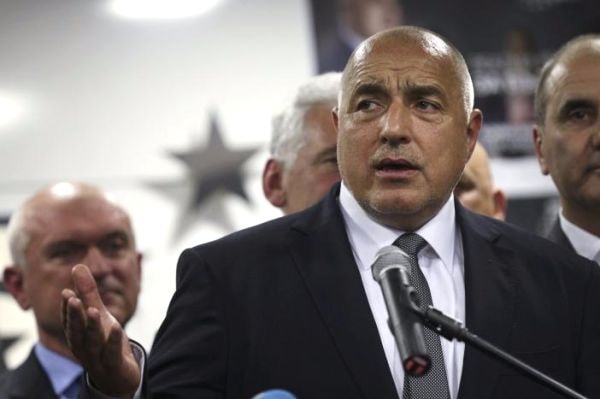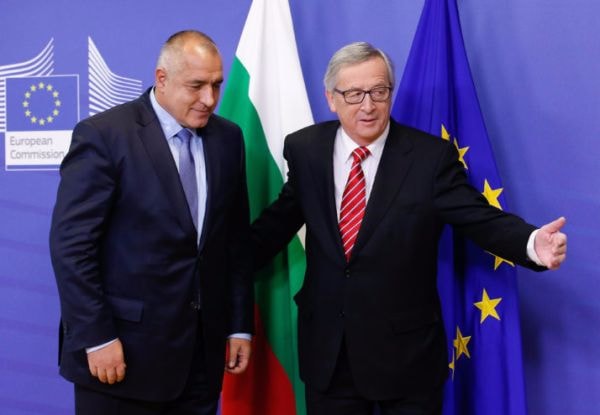The war in the 'land of roses'
(Baonghean) - According to preliminary results, the Citizens' Party for the Development of Bulgaria (GERB) of former Prime Minister Boyko Borisov won the parliamentary election held on March 26. The victory of Mr. Borisov, who has a pro-Western ideology, is expected to reshape the country's relationship with Russia and the West in the coming time. However, this path is not simple, as the Bulgarian people and politics are still divided on this issue.
 |
| Former Bulgarian Prime Minister Boyko Borisov won the recent parliamentary election, but will face many difficulties in forming a coalition government. (Source: Reuters) |
Winning is not everything
With a narrow margin, the Civic Party for Development (GERB) of former Prime Minister Boyko Borisov won over the Bulgarian Socialist Party (BSP) of leader Kornelia Ninova in the early parliamentary elections held on March 26, with more than 32% and more than 28% respectively. If the results are recognized, Borisov will likely become the new Prime Minister of Bulgaria.
The most interesting thing about this Bulgarian election is that Mr. Boyko Borisov is a person who has a view leaning towards the West and the North Atlantic Treaty Organization (NATO). Although in his statement, Mr. Borisov affirmed that the election results once again confirmed that his Party is still the most trusted ruling party today. However, forming a new Government and thereby reshaping Mr. Borisov's relationship with the West is not a simple path.
In her latest statement, despite admitting defeat, the leader of the opposition Socialist Party, Kornelia Ninova, announced that she would not form a coalition with former Prime Minister Borisov's party. Meanwhile, the parties with votes exceeding the 4% threshold to qualify for a coalition are mostly populist or ultra-nationalist.
Another example is the most recent election in 2014, which took more than a month for the ruling coalition to be formed. Not only that, the public must still not have forgotten that last November, Mr. Borisov had to resign as Prime Minister because his ruling coalition no longer had a majority in the National Assembly. This move came after the defeat of former Speaker of the National Assembly Tsetska Tsacheva of the Citizens for European Development of Bulgaria (GERB) party - the largest party in Prime Minister Borisov's ruling coalition at that time - to candidate Rumen Radev, backed by the opposition Socialist Party of Bulgaria.
Voters confused?
It can be said that the results of the presidential and prime ministerial elections in the past few months have shown that Bulgaria is experiencing many divisions and political crises. If in the presidential election last year, a pro-Russian candidate won; then in the recent parliamentary election, the pro-Western party of former Prime Minister Borisov won.
Looking back at the end of last year after the presidential election results, observers said that the failure of candidate Tsetska Tsacheva of the ruling party Citizens for European Development of Bulgaria had many reasons. That is because the people were still not satisfied with the slow progress in the fight against corruption of the ruling party as well as disappointed in the relationship between Bulgaria and the European Union. Meanwhile, Bulgaria is heavily dependent on energy from Russia, and has suffered many losses due to the EU's sanctions against Russia.
So, with a commitment to improving relations with Russia, Mr. Rumen Radev won the support of voters in this country to become President of Bulgaria. However, just a few months later, former Prime Minister Boyko Borisov, a pro-Western school, won. Of course, the path to forming a coalition government will be very difficult, but this result shows that Bulgarian voters are really confused.
 |
| Mr. Boyko Borisov, then Prime Minister of Bulgaria, was welcomed by President of the European Commission Jean-Claude Juncker in Brussels, Belgium. (Source: Politico) |
Russia or the West?
It can be said that the reality of Bulgaria - the poorest country in the European Union in recent years - has made voters in this country not really put their trust in any political party. After many years of joining the European Union, nearly a quarter of Bulgaria's population still lives below the official EU poverty line, while the unemployment rate is up to 20%. Some voters also complain that politicians are spending too much time on power struggles and self-enrichment, rather than really being determined to solve the country's difficulties.
As a country in the strategy of competing for influence between Russia and the West, Bulgaria, although a member of the European Union (EU) and NATO, also has many interests dependent on Russia. Therefore, the parties in Bulgaria are currently divided in two directions: pro-Western or pro-Russian. If Bulgaria leans towards Europe and NATO, it will be guaranteed security but suffer great economic losses. Even with the "multi-speed Europe" strategy that EU leaders are nurturing, Bulgaria is at risk of falling into the situation of "second-class citizen".
On the contrary, if Bulgaria leans towards Russia, it will suffer less economic damage due to the easing of sanctions against Russia. However, this will make the EU and NATO frustrated and impose even stricter terms on Bulgaria. With such a reality, the leaders of the parties in Bulgaria will have to spend a lot of time to neutralize the complicated relationship with both Russia and the West. Only then will the economic and political crisis in the "land of roses" not last long.
Phuong Hoa

